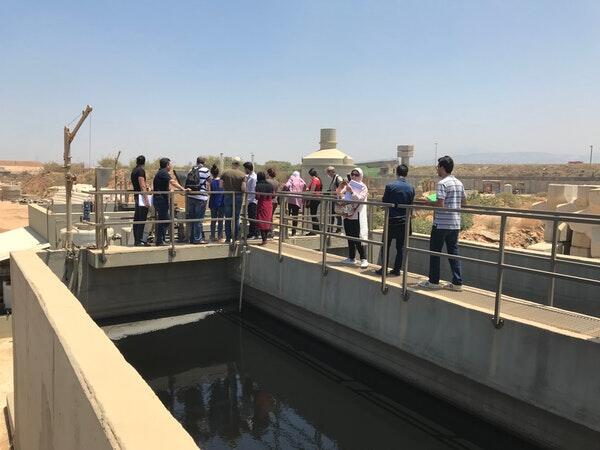Strengthening Capacities on the Sustainable Management of Leachate
in the Mediterraneanwithin the EU funded SWIM-H2020 SM Project
The EU funded SWIM-H2020 SM Project organizes in Beirut a five-day regional capacity building activity (25-29 June 2018) that includes a Study Tour of Leachate Treatment Facilities in Lebanon and the launching of an experience exchange process among Mediterranean peers working on leachate management.
This activity is implemented under the Horizon2020 component of the Project in an effort to address the acute problem of hazardous substances disposal such as leachate. It is combined with a National SWIM-H2020 SM Training of Lebanese stakeholders on the same topic. So far, the Project has implemented a number of workshops and consultations on the involvement of the private sector in water infrastructures, while more activities are to follow on Integrated Water Resources Management, the abatement of industrial pollution and on the cost of environmental degradation.
The aim is to reinforce the capacities of decision-makers and technical staff on the integrated approach to the sustainable management of leachate based on state-of-the-art technologies and best practices and lessons learned including planning, finance and procurement options. The trainees are supported to better evaluate the existing situation at legal, institutional and technical levels in their countries/regions and upscale them. Visiting the challenging case studies of Lebanon (existing, under construction and new infrastructures) offers the opportunity to the Peers from the other Mediterranean countries, which are facing very similar situations, to benefit from the lessons learned and the state-of-the-art technologies and options that are realistic and feasible.
Forty (40) decision-makers and technical staff participated from Algeria, Egypt, Jordan, Lebanon, Morocco, Palestine and Tunisia, from National Ministries or Public Agencies responsible for the design of leachate treatment plants and regional or local authorities in charge of the monitoring or operation of solid waste infrastructures and leachate management plants. The trainees from Lebanon include decision-makers and technical staff from the Ministry of Environment, Ministry of Energy and Water, Municipalities, the Council for Development and Reconstruction (CDR), OMSAR, Operators, Researchers, Consultants, Non-Governmental Organisations and others.
The environmental risks of leachate generation in landfills arise from its escaping into the surrounding environment, particularly to watercourses and groundwater. Ultimately leachate poses serious threats to public health and environmental health. These risks can however be mitigated by properly designed and engineered landfill sites and sustainable leachate treatment. As the MENA countries are beginning to adopt modern solid waste management practices either through creating new facilities or by upgrading existing dumpsites and unsanitary landfills, leachate management requires special attention dealing with treatment technologies, operation procedures and procurement options.
This activity will support Lebanon to better design and choose proven and appropriate technologies for the treatment of leachate within the proposed rehabilitation plans. “Strategies and plans must take into consideration the minimization and prevention of leachate generation in sanitary landfills and solid waste management plants in order to also minimize the high cost of its efficient management”, said Bassam Sabbagh, Head of Urban Environment Service at the Ministry of Environment.
The SWIM-H2020 SM EU-funded Project aims to contribute to the sustainable use of scarce water resources and properly manage municipal waste, industrial emissions and waste water, and therefore enhance, directly and indirectly, resilience to climate variability and change in the entire region with emphasis on the countries of North Africa and the Middle East (Algeria, Egypt, Israel, Jordan, Lebanon, Libya, Morocco, Palestine, [Syria] and Tunisia).
The civil society component of SWIM-H2020 SM is facilitated by the UfM labelled BlueGreen project and network.
Disclaimer
This publication was produced with the financial support of the European Union. Its contents are the sole responsibility of the SWIM-H2020 SM Project and do not necessarily reflect the views of the European Union.












